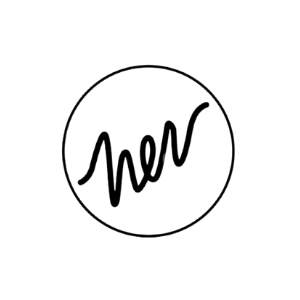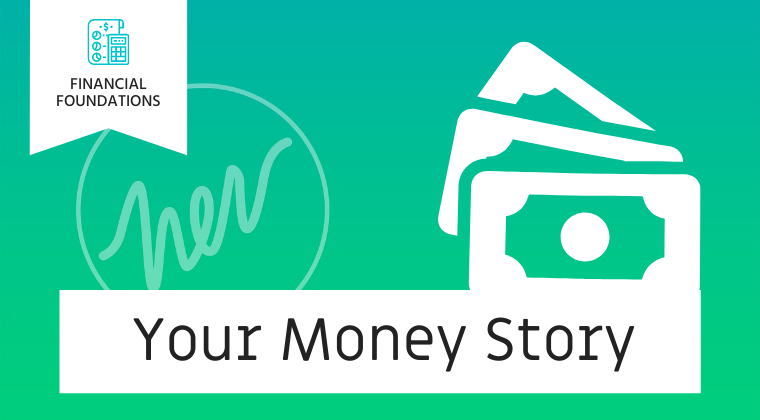When you’re not out stockpiling toilet paper and fighting for the last bag of rotini at Costco, you are probably worried about your money. The stock market, it’s down, it’s up, Goldman says it might go way down again. What does this mean for you? What will the latest crash mean for your job?
Below are three things I’m doing to feel good about my money today. I’ve done my best to build a money plan for myself that is resilient for both bull markets (like last year) and bear markets (this year). While I’m not perfect with my money, I’ve created some guardrails so even if I do nothing right that month I’m paying myself first and automating to my goals. If you’re interested in coming up with a broader plan for your money so you feel confident through a down turn, check out my online course (you’re going to need to do SOMETHING) during social distancing.
How can I prepare if there’s a recession:
1. Check your emergency fund Do you have some cash stored away in case of a rainy day? It’s ok if the answer is no or if it’s not as much as you would like it to be. There’s no shame here, e.g., I burned through some of mine paying for December travel and I haven’t built it back up to where I want it to be. However, as much as I might like my emergency fund to be a little higher. Right now, it’s important that I’m honest with myself so I can make a plan based on where I am at. Here’s what I’m calculating:
a. How much cash I have on hand between checking and savings
b. My monthly expenses (I generally go to my bank website and average my last 3 months of spending).
c. How long my emergency fund will last. (Cash on hand / monthly expenses). Most experts advocate for having 5-6 months of living expenses in the bank.
If you don’t have an emergency fund or if you’re currently storing yours in a regular savings account not earning much interest, consider opening a high-yield savings account. I personally use Ally (no affiliate link here, I just think this is the best option for me). The perks to having a separate saving account are: you don’t see the money (less likely to spend it) and high-yield accounts are 10-20 times higher interest than what you get from a regular bank. If you don’t have an emergency fund yet, steps one and two are to set up a high-yield account and an auto transfer. Should take less than 3 hours (less than your old commute). Use this time at home to help your future self.
2. Look at spending. I’m looking at my emergency fund and after talking to my partner, I’m feeling like we are in a good spot. We could easily pay our rent for 5-6 months and support living expenses even if we both lost our jobs. Neither of our jobs feel particularly risky since they’re relatively counter cyclical (academic publishing and school food). For us, we aren’t going to make any big purchases right now and I am going to postpone making some extra debt payments, but we are not slashing spending (the economy is so interdependent, us stopping spending, especially at smaller businesses like our dog groomer can have a big impact). On the flip side, if you’re looking at your emergency fund and it’s not where you want it to be, you may need to aggressively cut your spending so you can build up a cushion ASAP (first step, setting up an account to hold this emergency saving, see above). Not making a plan is a plan – it’s just a bad one.
3. Stay the course with your long-term savings. Remember, despite the HUGE market swings, as of 3/16, YTD the market is down 26% compared to a 29% gain in 2019. I recently had a friend open up her account and say, “Ack, I’ve lost $30K this year. I don’t want to lose all my money.” However, when we did the math she is still about break even to where she was a year ago. Not great, but no, even when investors and the news are freaking out about market dips, they are not discussing 100% decreases, they’re talking 5-10% decreases. After the last 10+ years of market growth, most of us were still much better off having been invested in the market. If the past is any predictor of the future, the below chart shows that the market will continue to have ups and downs. Note: the “great stock market fall of 1987” was barely a blip in an overall trajectory of growth.

Source: Google search, S&P 500
Here are three things I’m doing to prepare for the next three months.
-
Stay the course with your long-term savings. If you’re in your 30s worried about your retirement savings, you have 30+ years for stocks to come back (see the S&P chart below).
-
Expect more volatility. If it stresses you out, don’t check your accounts every day. Limit yourself to once a month at most.
-
Stay home & don’t stop all spending. The number one thing we can all do for the markets is to reduce transmission of the disease flattening the curve and creating more certainty. This is not a snow day! On the flip side, the majority of the market growth for the past 10-years was driven by consumer and not government spending so your dollars matter. Buy a gift certificate for a haircut, dog grooming, or to support your favorite local business. Keep shopping. You can also help out people in your community who may have lost their jobs or have had their hours cut. Here are a few resources:
-
- Restaurant Workers Community Fund to help the folks that make eating out possible.
- Many food banks in America are struggling to keep up with demand at this time. I get to partner with a lot of these organizations for my day job. Feeding America is a great way to support food insecure families right now.
- Houston hero Mattress Mack is once again stepping in to support the community. While they’re not a certified non-profit (and the Houston Food Bank) can certainly use their support, I’ve seen a few GoFundMe’s or other opportunities to give directly to individuals or families. Those are a great way to give since it’s direct funding dollars.
If you’re worried about your job because you work in energy, finance or another hard-hit industry here are some more tips:
-
-
Start to reactivate your professional network. Come up with a list of 4-5 people (your old boss you haven’t talked to in 2 years) that you would want to get in touch with if you were looking for a new job. Get back in touch now to start rebuilding the relationship.
-
Set up a networking check in. While you cannot get coffee, you can do a phone call that can help you start to build connections in a new field or at a new company.
-
Look at job descriptions that interest you. What out there draws your attention? Are there any gaps in the skills that you would need to apply for the jobs that look the most interesting? Is there anything you can do now to build those skills?
-
Update your resume. Take advantage of this time at home to get a jump start.
-

